Articles and Company News
We aim to keep our clients up-to-date with news and relevant opinions which concern your finances. Our regular email bulletin is designed to inform and share views with our members.
2023
RBA Media Release, March 2023
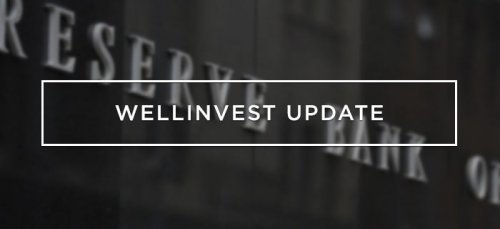
Statement by Philip Lowe, Governor: Monetary Policy Decision
At its meeting today, the Board decided to increase the cash rate target by 25 basis points to 3.60 per cent. It also increased the interest rate on Exchange Settlement balances by 25 basis points to 3.50 per cent.
Global inflation remains very high. In headline terms it is moderating, although services price inflation remains elevated in many economies. It will be some time before inflation is back to target rates. The outlook for the global economy remains subdued, with below average growth expected this year and next.
The monthly CPI indicator suggests that inflation has peaked in Australia. Goods price inflation is expected to moderate over the months ahead due to both global developments and softer demand in Australia. Services price inflation remains high, with strong demand for some services over the summer. Rents are increasing at the fastest rate in some years, with vacancy rates low in many parts of the country. The central forecast is for inflation to decline this year and next, to be around 3 per cent in mid-2025. Medium-term inflation expectations remain well anchored, and it is important that this remains the case.
Growth in the Australian economy has slowed, with GDP increasing by 0.5 per cent in the December quarter and 2.7 per cent over the year. Growth over the next couple of years is expected to be below trend. Household consumption growth has slowed due to the tighter financial conditions and the outlook for housing construction has softened. In contrast, the outlook for business investment remains positive, with many businesses operating at a very high level of capacity utilisation.
The labour market remains very tight, although conditions have eased a little. The unemployment rate remains at close to a 50-year low. Employment fell in January, but this partly reflects changing seasonal patterns in labour hiring. Many firms continue to experience difficulty hiring workers, although some report a recent easing in labour shortages. As economic growth slows, unemployment is expected to increase.
Wages growth is continuing to pick up in response to the tight labour market and higher inflation. At the aggregate level, wages growth is still consistent with the inflation target and recent data suggest a lower risk of a cycle in which prices and wages chase one another. The Board, however, remains alert to the risk of a prices-wages spiral, given the limited spare capacity in the economy and the historically low rate of unemployment. Accordingly, it will continue to pay close attention to both the evolution of labour costs and the price-setting behaviour of firms.
The Board recognises that monetary policy operates with a lag and that the full effect of the cumulative increase in interest rates is yet to be felt in mortgage payments. There is uncertainty around the timing and extent of the slowdown in household spending. Some households have substantial savings buffers, but others are experiencing a painful squeeze on their budgets due to higher interest rates and the increase in the cost of living. Household balance sheets are also being affected by the decline in housing prices. Another source of uncertainty is how the global economy responds to the large and rapid increase in interest rates around the world. These uncertainties mean that there are a range of potential scenarios for the Australian economy.
The Board’s priority is to return inflation to target. High inflation makes life difficult for people and damages the functioning of the economy. And if high inflation were to become entrenched in people’s expectations, it would be very costly to reduce later, involving even higher interest rates and a larger rise in unemployment. The Board is seeking to return inflation to the 2–3 per cent target range while keeping the economy on an even keel, but the path to achieving a soft landing remains a narrow one.
The Board expects that further tightening of monetary policy will be needed to ensure that inflation returns to target and that this period of high inflation is only temporary. In assessing when and how much further interest rates need to increase, the Board will be paying close attention to developments in the global economy, trends in household spending and the outlook for inflation and the labour market. The Board remains resolute in its determination to return inflation to target and will do what is necessary to achieve that.
2023
RBA Media Release, February 2023
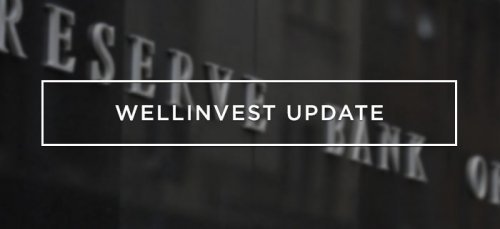
Statement by Philip Lowe, Governor: Monetary Policy Decision
At its meeting today, the Board decided to increase the cash rate target by 25 basis points to 3.35 per cent. It also increased the interest rate on Exchange Settlement balances by 25 basis points to 3.25 per cent.
Global inflation remains very high. It is, however, moderating in response to lower energy prices, the resolution of supply-chain problems and the tightening of monetary policy. It will be some time, though, before inflation is back to target rates. The outlook for the global economy remains subdued, with below average growth expected this year and next.
In Australia, CPI inflation over the year to the December quarter was 7.8 per cent, the highest since 1990. In underlying terms, inflation was 6.9 per cent, which was higher than expected. Global factors explain much of this high inflation, but strong domestic demand is adding to the inflationary pressures in a number of areas of the economy.
Inflation is expected to decline this year due to both global factors and slower growth in domestic demand. The central forecast is for CPI inflation to decline to 4¾ per cent this year and to around 3 per cent by mid-2025. Medium-term inflation expectations remain well anchored, and it is important that this remains the case.
The Australian economy grew strongly over 2022. The central forecast is little changed from three months ago, with GDP growth expected to slow to around 1½ per cent over 2023 and 2024. The recovery in spending on services following the lifting of COVID restrictions has largely run its course and the tighter financial conditions will constrain spending more broadly.
The labour market remains very tight. The unemployment rate has been steady at around 3½ per cent over recent months, the lowest rate since 1974. Job vacancies and job ads are both at very high levels, but have declined a little recently. Many firms continue to experience difficulty hiring workers, although some report a recent easing in labour shortages. As economic growth slows, unemployment is expected to increase. The central forecast is for the unemployment rate to increase to 3¾ per cent by the end of this year and 4½ per cent by mid-2025.
Wages growth is continuing to pick up from the low rates of recent years and a further pick-up is expected due to the tight labour market and higher inflation. Given the importance of avoiding a prices-wages spiral, the Board will continue to pay close attention to both the evolution of labour costs and the price-setting behaviour of firms in the period ahead.
The Board recognises that monetary policy operates with a lag and that the full effect of the cumulative increase in interest rates is yet to be felt in mortgage payments. There is uncertainty around the timing and extent of the expected slowdown in household spending. Some households have substantial savings buffers, but others are experiencing a painful squeeze on their budgets due to higher interest rates and the increase in the cost of living. Household balance sheets are also being affected by the decline in housing prices. Another source of uncertainty is how the global economy responds to the large and rapid increase in interest rates around the world. These uncertainties mean that there are a range of potential scenarios for the Australian economy.
The Board’s priority is to return inflation to target. High inflation makes life difficult for people and damages the functioning of the economy. And if high inflation were to become entrenched in people’s expectations, it would be very costly to reduce later. The Board is seeking to return inflation to the 2–3 per cent range while keeping the economy on an even keel, but the path to achieving a soft landing remains a narrow one.
The Board expects that further increases in interest rates will be needed over the months ahead to ensure that inflation returns to target and that this period of high inflation is only temporary. In assessing how much further interest rates need to increase, the Board will be paying close attention to developments in the global economy, trends in household spending and the outlook for inflation and the labour market. The Board remains resolute in its determination to return inflation to target and will do what is necessary to achieve that.
2022
RBA Media Release, December 2022
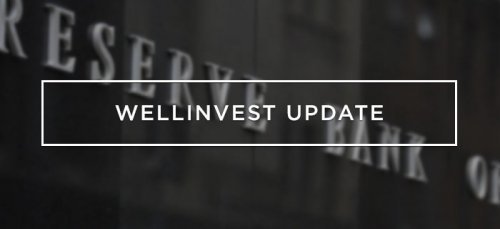
Statement by Philip Lowe, Governor: Monetary Policy Decision
At its meeting today, the Board decided to increase the cash rate target by 25 basis points to 3.10 per cent. It also increased the interest rate on Exchange Settlement balances by 25 basis points to 3.00 per cent.
Inflation in Australia is too high, at 6.9 per cent over the year to October. Global factors explain much of this high inflation, but strong domestic demand relative to the ability of the economy to meet that demand is also playing a role. Returning inflation to target requires a more sustainable balance between demand and supply.
A further increase in inflation is expected over the months ahead, with inflation forecast to peak at around 8 per cent over the year to the December quarter. Inflation is then expected to decline next year due to the ongoing resolution of global supply-side problems, recent declines in some commodity prices and slower growth in demand. Medium-term inflation expectations remain well anchored, and it is important that this remains the case. The Bank’s central forecast is for CPI inflation to decline over the next couple of years to be a little above 3 per cent over 2024.
The Australian economy is continuing to grow solidly. Economic growth is expected to moderate over the year ahead as the global economy slows, the bounce-back in spending on services runs its course, and growth in household consumption slows due to tighter financial conditions. The Bank’s central forecast is for growth of around 1½ per cent in 2023 and 2024.
The labour market remains very tight, with many firms having difficulty hiring workers. The unemployment rate declined to 3.4 per cent in October, the lowest rate since 1974. Job vacancies and job ads are both at very high levels, although they have declined a little recently. Employment growth has also slowed as spare capacity in the labour market is absorbed. Wages growth is continuing to pick up from the low rates of recent years and a further pick-up is expected due to the tight labour market and higher inflation. Given the importance of avoiding a prices-wages spiral, the Board will continue to pay close attention to both the evolution of labour costs and the price-setting behaviour of firms in the period ahead.
There has been a substantial cumulative increase in interest rates since May. This has been necessary to ensure that the current period of high inflation is only temporary. High inflation damages our economy and makes life more difficult for people. The Board’s priority is to re-establish low inflation and return inflation to the 2–3 per cent range over time.
The Board recognises that monetary policy operates with a lag and that the full effect of the increase in interest rates is yet to be felt in mortgage payments. Household spending is expected to slow over the period ahead although the timing and extent of this slowdown is uncertain. Another source of uncertainty is the outlook for the global economy, which has deteriorated. The Board is seeking to keep the economy on an even keel as it returns inflation to target, but these uncertainties mean that there are a range of potential scenarios. The path to achieving the needed decline in inflation and achieving a soft landing for the economy remains a narrow one.
The Board expects to increase interest rates further over the period ahead, but it is not on a pre-set course. It is closely monitoring the global economy, household spending and wage and price-setting behaviour. The size and timing of future interest rate increases will continue to be determined by the incoming data and the Board’s assessment of the outlook for inflation and the labour market. The Board remains resolute in its determination to return inflation to target and will do what is necessary to achieve that.
2022
RBA Media Release, November 2022
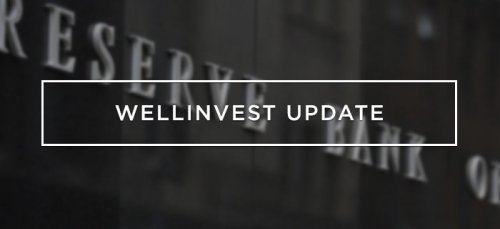
Statement by Philip Lowe, Governor: Monetary Policy Decision
At its meeting today, the Board decided to increase the cash rate target by 25 basis points to 2.60 per cent. It also increased the interest rate on Exchange Settlement balances by 25 basis points to 2.50 per cent.
As is the case in most countries, inflation in Australia is too high. Over the year to September, the CPI inflation rate was 7.3 per cent, the highest it has been in more than three decades. Global factors explain much of this high inflation, but strong domestic demand relative to the ability of the economy to meet that demand is also playing a role. Returning inflation to target requires a more sustainable balance between demand and supply.
A further increase in inflation is expected over the months ahead, with inflation now forecast to peak at around 8 per cent later this year. Inflation is then expected to decline next year due to the ongoing resolution of global supply-side problems, recent declines in some commodity prices and slower growth in demand. Medium-term inflation expectations remain well anchored, and it is important that this remains the case. The Bank’s central forecast is for CPI inflation to be around 4¾ per cent over 2023 and a little above 3 per cent over 2024.
The Australian economy is continuing to grow solidly and national income is being boosted by a record level of the terms of trade. Economic growth is expected to moderate over the year ahead as the global economy slows, the bounce-back in spending on services runs its course, and growth in household consumption slows due to tighter financial conditions. The Bank’s central forecast for GDP growth has been revised down a little, with growth of around 3 per cent expected this year and 1½ per cent in 2023 and 2024.
The labour market remains very tight, with many firms having difficulty hiring workers. The unemployment rate was steady at 3.5 per cent in September, around the lowest rate in almost 50 years. Job vacancies and job ads are both at very high levels, although employment growth has slowed over recent months as spare capacity in the labour market has been absorbed. The central forecast is for the unemployment rate to remain around its current level over the months ahead, but to increase gradually to a little above 4 per cent in 2024 as economic growth slows.
Wages growth is continuing to pick up from the low rates of recent years, although it remains lower than in many other advanced economies. A further pick-up is expected due to the tight labour market and higher inflation. Given the importance of avoiding a prices-wages spiral, the Board will continue to pay close attention to both the evolution of labour costs and the price-setting behaviour of firms in the period ahead.
Price stability is a prerequisite for a strong economy and a sustained period of full employment. Given this, the Board’s priority is to return inflation to the 2–3 per cent range over time. It is seeking to do this while keeping the economy on an even keel. The path to achieving this balance remains a narrow one and it is clouded in uncertainty.
One source of uncertainty is the outlook for the global economy, which has deteriorated over recent months. Another is how household spending in Australia responds to the tighter financial conditions. The Board recognises that monetary policy operates with a lag and that the full effect of the increase in interest rates is yet to be felt in mortgage payments. Higher interest rates and higher inflation are putting pressure on the budgets of many households. Consumer confidence has also fallen and housing prices have been declining following the earlier large increases. Working in the other direction, people are finding jobs, gaining more hours of work and receiving higher wages. Many households have also built up large financial buffers and the saving rate remains higher than it was before the pandemic.
The Board has increased interest rates materially since May. This has been necessary to establish a more sustainable balance of demand and supply in the Australian economy to help return inflation to target. The Board expects to increase interest rates further over the period ahead. It is closely monitoring the global economy, household spending and wage and price-setting behaviour. The size and timing of future interest rate increases will continue to be determined by the incoming data and the Board’s assessment of the outlook for inflation and the labour market. The Board remains resolute in its determination to return inflation to target and will do what is necessary to achieve that.
2022
RBA Media Release, October 2022
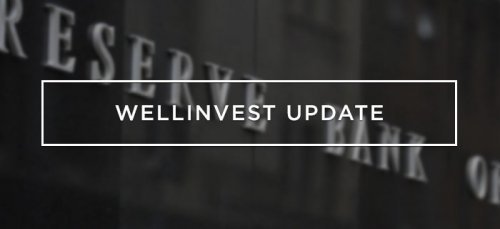
Statement by Philip Lowe, Governor: Monetary Policy Decision
At its meeting today, the Board decided to increase the cash rate target by 25 basis points to 2.60 per cent. It also increased the interest rate on Exchange Settlement balances by 25 basis points to 2.50 per cent.
The Board is committed to returning inflation to the 2–3 per cent range over time. Today’s increase in interest rates will help achieve this goal and further increases are likely to be required over the period ahead. The cash rate has been increased substantially in a short period of time. Reflecting this, the Board decided to increase the cash rate by 25 basis points this month as it assesses the outlook for inflation and economic growth in Australia.
As is the case in most countries, inflation in Australia is too high. Global factors explain much of this high inflation, but strong domestic demand relative to the ability of the economy to meet that demand is also playing a role.
A further increase in inflation is expected over the months ahead, before inflation then declines back towards the 2–3 per cent range. The expected moderation in inflation next year reflects the ongoing resolution of global supply-side problems, recent declines in some commodity prices and the impact of rising interest rates. Medium-term inflation expectations remain well anchored, and it is important that this remains the case. The Bank’s central forecast is for CPI inflation to be around 7¾ per cent over 2022, a little above 4 per cent over 2023 and around 3 per cent over 2024.
The Australian economy is continuing to grow solidly and national income is being boosted by a record level of the terms of trade. The labour market is very tight and many firms are having difficulty hiring workers. The unemployment rate in August was 3.5 per cent, around the lowest rate in almost 50 years. Job vacancies and job ads are both at very high levels, suggesting a further decline in the unemployment rate over the months ahead. Beyond that, some increase in the unemployment rate is expected as economic growth slows.
Wages growth is continuing to pick up from the low rates of recent years, although it remains lower than in other advanced economies where inflation is higher. Given the tight labour market and the upstream price pressures, the Board will continue to pay close attention to both the evolution of labour costs and the price-setting behaviour of firms in the period ahead.
Price stability is a prerequisite for a strong economy and a sustained period of full employment. Given this, the Board’s priority is to return inflation to the 2–3 per cent range over time. It is seeking to do this while keeping the economy on an even keel. The path to achieving this balance is a narrow one and it is clouded in uncertainty.
One source of uncertainty is the outlook for the global economy, which has deteriorated recently. Another is how household spending in Australia responds to the tighter financial conditions. Higher inflation and higher interest rates are putting pressure on household budgets, with the full effects of higher interest rates yet to be felt in mortgage payments. Consumer confidence has also fallen and housing prices are declining after the earlier large increases. Working in the other direction, people are finding jobs, gaining more hours of work and receiving higher wages. Many households have also built up large financial buffers and the saving rate still remains higher than it was before the pandemic.
Today’s further increase in interest rates will help achieve a more sustainable balance of demand and supply in the Australian economy. This is necessary to bring inflation back down. The Board expects to increase interest rates further over the period ahead. It is closely monitoring the global economy, household spending and wage and price-setting behaviour. The size and timing of future interest rate increases will continue to be determined by the incoming data and the Board’s assessment of the outlook for inflation and the labour market. The Board remains resolute in its determination to return inflation to target and will do what is necessary to achieve that.
2022
RBA Media Release, September 2022
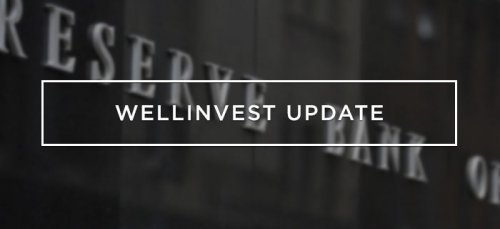
Statement by Philip Lowe, Governor: Monetary Policy Decision
At its meeting today, the Board decided to increase the cash rate target by 50 basis points to 2.35 per cent. It also increased the interest rate on Exchange Settlement balances by 50 basis points to 2.25 per cent.
The Board is committed to returning inflation to the 2–3 per cent range over time. It is seeking to do this while keeping the economy on an even keel. The path to achieving this balance is a narrow one and clouded in uncertainty, not least because of global developments. The outlook for global economic growth has deteriorated due to pressures on real incomes from high inflation, the tightening of monetary policy in most countries, Russia's invasion of Ukraine, and the COVID containment measures and other policy challenges in China.
Inflation in Australia is the highest it has been since the early 1990s and is expected to increase further over the months ahead. Global factors explain much of the increase in inflation, but domestic factors are also playing a role. There are widespread upward pressures on prices from strong demand, a tight labour market and capacity constraints in some sectors of the economy.
Inflation is expected to peak later this year and then decline back towards the 2–3 per cent range. The expected moderation in inflation reflects the ongoing resolution of global supply-side problems, recent declines in some commodity prices and the impact of rising interest rates. Medium-term inflation expectations remain well anchored, and it is important that this remains the case. The Bank's central forecast is for CPI inflation to be around 7¾ per cent over 2022, a little above 4 per cent over 2023 and around 3 per cent over 2024.
The Australian economy is continuing to grow solidly and national income is being boosted by a record level of the terms of trade. The labour market is very tight and many firms are having difficulty hiring workers. The unemployment rate declined further in July to 3.4 per cent, the lowest rate in almost 50 years. Job vacancies and job ads are both at very high levels, suggesting a further decline in the unemployment rate over the months ahead. Beyond that, some increase in the unemployment rate is expected as economic growth slows.
Wages growth has picked up from the low rates of recent years and there are some pockets where labour costs are increasing briskly. Given the tight labour market and the upstream price pressures, the Board will continue to pay close attention to both the evolution of labour costs and the price-setting behaviour of firms in the period ahead.
An important source of uncertainty continues to be the behaviour of household spending. Higher inflation and higher interest rates are putting pressure on household budgets, with the full effects of higher interest rates yet to be felt in mortgage payments. Consumer confidence has also fallen and housing prices are declining in most markets after the earlier large increases. Working in the other direction, people are finding jobs, gaining more hours of work and receiving higher wages. Many households have also built up large financial buffers and the saving rate remains higher than it was before the pandemic. The Board will be paying close attention to how these various factors balance out as it assesses the appropriate setting of monetary policy.
The further increase in interest rates today will help bring inflation back to target and create a more sustainable balance of demand and supply in the Australian economy. Price stability is a prerequisite for a strong economy and a sustained period of full employment. The Board expects to increase interest rates further over the months ahead, but it is not on a pre-set path. The size and timing of future interest rate increases will be guided by the incoming data and the Board's assessment of the outlook for inflation and the labour market. The Board is committed to doing what is necessary to ensure that inflation in Australia returns to target over time.
2022
RBA Media Release, August 2022
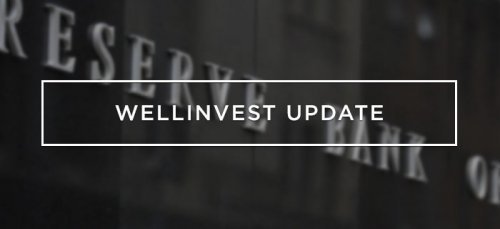
Statement by Philip Lowe, Governor: Monetary Policy Decision
At its meeting today, the Board decided to increase the cash rate target by 50 basis points to 1.85 per cent. It also increased the interest rate on Exchange Settlement balances by 50 basis points to 1.75 per cent.
The Board places a high priority on the return of inflation to the 2–3 per cent range over time, while keeping the economy on an even keel. The path to achieve this balance is a narrow one and clouded in uncertainty, not least because of global developments. The outlook for global economic growth has been downgraded due to pressures on real incomes from higher inflation, the tightening of monetary policy in most countries, Russia's invasion of Ukraine and the COVID containment measures in China.
Inflation in Australia is the highest it has been since the early 1990s. In headline terms, inflation was 6.1 per cent over the year to the June quarter; in underlying terms it was 4.9 per cent. Global factors explain much of the increase in inflation, but domestic factors are also playing a role. There are widespread upward pressures on prices from strong demand, a tight labour market and capacity constraints in some sectors of the economy. The floods this year are also affecting some prices.
Inflation is expected to peak later this year and then decline back towards the 2–3 per cent range. The expected moderation in inflation reflects the ongoing resolution of global supply-side problems, the stabilisation of commodity prices and the impact of rising interest rates. Medium-term inflation expectations remain well anchored, and it is important that this remains the case. The Bank's central forecast is for CPI inflation to be around 7¾ per cent over 2022, a little above 4 per cent over 2023 and around 3 per cent over 2024.
The Australian economy is expected to continue to grow strongly this year, with the pace of growth then slowing. Employment is growing strongly, consumer spending has been resilient and an upswing in business investment is underway. National income is also being boosted by a rise in the terms of trade, which are at a record high. The Bank's central forecast is for GDP growth of 3¼ per cent over 2022 and 1¾ per cent in each of the following two years.
The labour market remains tighter than it has been for many years. The unemployment rate declined further in June to 3.5 per cent, the lowest rate in almost 50 years. Job vacancies and job ads are both at very high levels and a further decline in unemployment is expected over the months ahead. Beyond that, some increase in unemployment is expected as economic growth slows. The Bank's central forecast is for the unemployment rate to be around 4 per cent at the end of 2024. Our liaison program and business surveys continue to point to a lift in wages growth from the low rates of recent years as firms compete for staff in the tight labour market.
A key source of uncertainty continues to be the behaviour of household spending. Higher inflation and higher interest rates are putting pressure on household budgets. Consumer confidence has also fallen and housing prices are declining in some markets after the large increases in recent years. Working in the other direction, people are finding jobs and obtaining more hours of work. Many households have also built up large financial buffers and the saving rate remains higher than it was before the pandemic. The Board will be paying close attention to how these various factors balance out as it assesses the appropriate setting of monetary policy.
Today's increase in interest rates is a further step in the normalisation of monetary conditions in Australia. The increase in interest rates over recent months has been required to bring inflation back to target and to create a more sustainable balance of demand and supply in the Australian economy. The Board expects to take further steps in the process of normalising monetary conditions over the months ahead, but it is not on a pre-set path. The size and timing of future interest rate increases will be guided by the incoming data and the Board's assessment of the outlook for inflation and the labour market. The Board is committed to doing what is necessary to ensure that inflation in Australia returns to target over time.
2022
RBA Media Release, July 2022
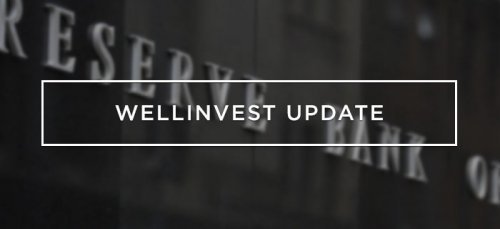
Statement by Philip Lowe, Governor: Monetary Policy Decision
At its meeting today, the Board decided to increase the cash rate target by 50 basis points to 1.35 per cent. It also increased the interest rate on Exchange Settlement balances by 50 basis points to 1.25 per cent.
Global inflation is high. It is being boosted by COVID-related disruptions to supply chains, the war in Ukraine and strong demand which is putting pressure on productive capacity. Monetary policy globally is responding to this higher inflation, although it will be some time yet before inflation returns to target in most countries.
Inflation in Australia is also high, but not as high as it is in many other countries. Global factors account for much of the increase in inflation in Australia, but domestic factors are also playing a role. Strong demand, a tight labour market and capacity constraints in some sectors are contributing to the upward pressure on prices. The floods are also affecting some prices.
Inflation is forecast to peak later this year and then decline back towards the 2–3 per cent range next year. As global supply-side problems continue to ease and commodity prices stabilise, even if at a high level, inflation is expected to moderate. Higher interest rates will also help establish a more sustainable balance between the demand for and the supply of goods and services. Medium-term inflation expectations remain well anchored and it is important that this remains the case. A full set of updated forecasts will be published next month following the release of the June quarter CPI.
The Australian economy remains resilient and the labour market is tighter than it has been for some time. The unemployment rate was steady at 3.9 per cent in May, the lowest rate in almost 50 years. Underemployment has also fallen significantly. Job vacancies and job ads are both at very high levels and a further decline in unemployment and underemployment is expected over the months ahead. The Bank's business liaison program and business surveys continue to point to a lift in wages growth from the low rates of recent years as firms compete for staff in the tight labour market.
One source of ongoing uncertainty about the economic outlook is the behaviour of household spending. The recent spending data have been positive, although household budgets are under pressure from higher prices and higher interest rates. Housing prices have also declined in some markets over recent months after the large increases of recent years. The household saving rate remains higher than it was before the pandemic and many households have built up large financial buffers and are benefiting from stronger income growth. The Board will be paying close attention to these various influences on household spending as it assesses the appropriate setting of monetary policy.
The Board will also be paying close attention to the global outlook, which remains clouded by the war in Ukraine and its effect on the prices for energy and agricultural commodities. Real household incomes are under pressure in many economies and financial conditions are tightening, as central banks increase interest rates. There are also ongoing uncertainties related to COVID, especially in China.
Today's increase in interest rates is a further step in the withdrawal of the extraordinary monetary support that was put in place to help insure the Australian economy against the worst possible effects of the pandemic. The resilience of the economy and the higher inflation mean that this extraordinary support is no longer needed. The Board expects to take further steps in the process of normalising monetary conditions in Australia over the months ahead. The size and timing of future interest rate increases will be guided by the incoming data and the Board's assessment of the outlook for inflation and the labour market. The Board is committed to doing what is necessary to ensure that inflation in Australia returns to target over time.
2022
RBA Media Release, June 2022
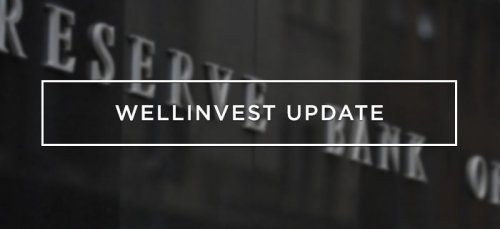
Statement by Philip Lowe, Governor: Monetary Policy Decision
At its meeting today, the Board decided to increase the cash rate target by 50 basis points to 85 basis points. It also increased the interest rate on Exchange Settlement balances by 50 basis points to 75 basis points.
Inflation in Australia has increased significantly. While inflation is lower than in most other advanced economies, it is higher than earlier expected. Global factors, including COVID-related disruptions to supply chains and the war in Ukraine, account for much of this increase in inflation. But domestic factors are playing a role too, with capacity constraints in some sectors and the tight labour market contributing to the upward pressure on prices. The floods earlier this year have also affected some prices.
Inflation is expected to increase further, but then decline back towards the 2–3 per cent range next year. Higher prices for electricity and gas and recent increases in petrol prices mean that, in the near term, inflation is likely to be higher than was expected a month ago. As the global supply-side problems are resolved and commodity prices stabilise, even if at a high level, inflation is expected to moderate. Today's increase in interest rates will assist with the return of inflation to target over time.
The Australian economy is resilient, growing by 0.8 per cent in the March quarter and 3.3 per cent over the year. Household and business balance sheets are generally in good shape, an upswing in business investment is underway and there is a large pipeline of construction work to be completed. Macroeconomic policy settings are supportive of growth and national income is being boosted by higher commodity prices. The terms of trade are at a record high.
The labour market is also strong. Employment has grown significantly and the unemployment rate is 3.9 per cent, which is the lowest rate in almost 50 years. Job vacancies and job ads are at high levels and a further decline in unemployment and underemployment is expected. The Bank's business liaison program continues to point to a lift in wages growth from the low rates of recent years as firms compete for staff in a tight labour market.
One source of uncertainty about the economic outlook is how household spending evolves, given the increasing pressure on Australian households' budgets from higher inflation. Interest rates are also increasing. Housing prices have declined in some markets over recent months but remain more than 25 per cent higher than prior to the pandemic, supporting household wealth and spending. The household saving rate also remains higher than it was before the pandemic and many households have built up large financial buffers. While the central scenario is for strong household consumption growth this year, the Board will be paying close attention to these various influences on consumption as it assesses the appropriate setting of monetary policy.
The Board will also be paying close attention to the global outlook, which remains clouded by the war in Ukraine and its effect on the prices for energy and agricultural commodities. Real household incomes are under pressure in many economies and financial conditions are tightening, as central banks withdraw monetary policy support in response to broad-based inflation. There are also ongoing uncertainties related to COVID, especially in China.
Today's increase in interest rates by the Board is a further step in the withdrawal of the extraordinary monetary support that was put in place to help the Australian economy during the pandemic. The resilience of the economy and the higher inflation mean that this extraordinary support is no longer needed. Given the current inflation pressures in the economy, and the still very low level of interest rates, the Board decided to move by 50 basis points today. The Board expects to take further steps in the process of normalising monetary conditions in Australia over the months ahead. The size and timing of future interest rate increases will be guided by the incoming data and the Board's assessment of the outlook for inflation and the labour market. The Board is committed to doing what is necessary to ensure that inflation in Australia returns to target over time.
2022
RBA Media Release, May 2022
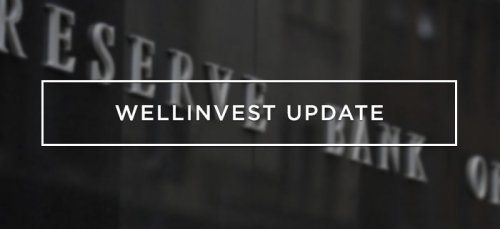
Statement by Philip Lowe, Governor: Monetary Policy Decision
At its meeting today, the Board decided to increase the cash rate target by 25 basis points to 35 basis points. It also increased the interest rate on Exchange Settlement balances from zero per cent to 25 basis points.
The Board judged that now was the right time to begin withdrawing some of the extraordinary monetary support that was put in place to help the Australian economy during the pandemic. The economy has proven to be resilient and inflation has picked up more quickly, and to a higher level, than was expected. There is also evidence that wages growth is picking up. Given this, and the very low level of interest rates, it is appropriate to start the process of normalising monetary conditions.
The resilience of the Australian economy is particularly evident in the labour market, with the unemployment rate declining over recent months to 4 per cent and labour force participation increasing to a record high. Both job vacancies and job ads are also at high levels. The central forecast is for the unemployment rate to decline to around 3½ per cent by early 2023 and remain around this level thereafter. This would be the lowest rate of unemployment in almost 50 years.
The outlook for economic growth in Australia also remains positive, although there are ongoing uncertainties about the global economy arising from: the ongoing disruptions from COVID-19, especially in China; the war in Ukraine; and declining consumer purchasing power from higher inflation. The central forecast is for Australian GDP to grow by 4¼ per cent over 2022 and 2 per cent over 2023. Household and business balance sheets are generally in good shape, an upswing in business investment is underway and there is a large pipeline of construction work to be completed. Macroeconomic policy settings remain supportive of growth and national income is being boosted by higher commodity prices.
Inflation has picked up significantly and by more than expected, although it remains lower than in most other advanced economies. Over the year to the March quarter, headline inflation was 5.1 per cent and in underlying terms inflation was 3.7 per cent. This rise in inflation largely reflects global factors. But domestic capacity constraints are increasingly playing a role and inflation pressures have broadened, with firms more prepared to pass through cost increases to consumer prices. A further rise in inflation is expected in the near term, but as supply-side disruptions are resolved, inflation is expected to decline back towards the target range of 2 to 3 per cent. The central forecast for 2022 is for headline inflation of around 6 per cent and underlying inflation of around 4¾ per cent; by mid 2024, headline and underlying inflation are forecast to have moderated to around 3 per cent. These forecasts are based on an assumption of further increases in interest rates.
The Bank's business liaison suggests that wages growth has been picking up. In a tight labour market, an increasing number of firms are paying higher wages to attract and retain staff, especially in an environment where the cost of living is rising. While aggregate wages growth was subdued during 2021 and no higher than it was prior to the pandemic, the more timely evidence from liaison and business surveys is that larger wage increases are now occurring in many private-sector firms.
Given both the progress towards full employment and the evidence on prices and wages, some withdrawal of the extraordinary monetary support provided through the pandemic is appropriate. Consistent with this, the Board does not plan to reinvest the proceeds of maturing government bonds and expects the Bank's balance sheet to decline significantly over the next couple of years as the Term Funding Facility comes to an end. The Board is not currently planning to sell the government bonds that the Bank purchased during the pandemic.
The Board is committed to doing what is necessary to ensure that inflation in Australia returns to target over time. This will require a further lift in interest rates over the period ahead. The Board will continue to closely monitor the incoming information and evolving balance of risks as it determines the timing and extent of future interest rate increases.
